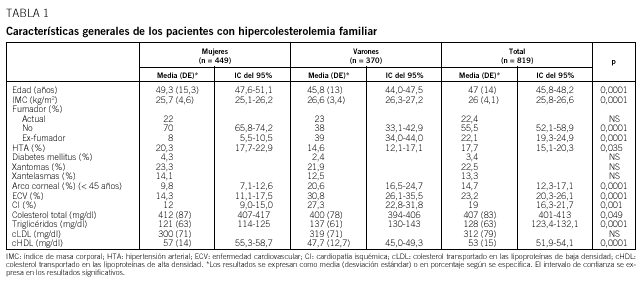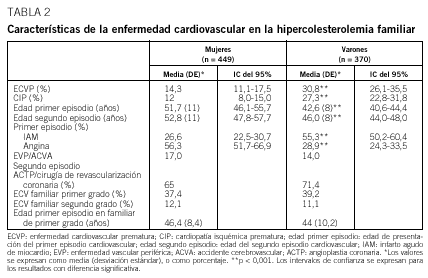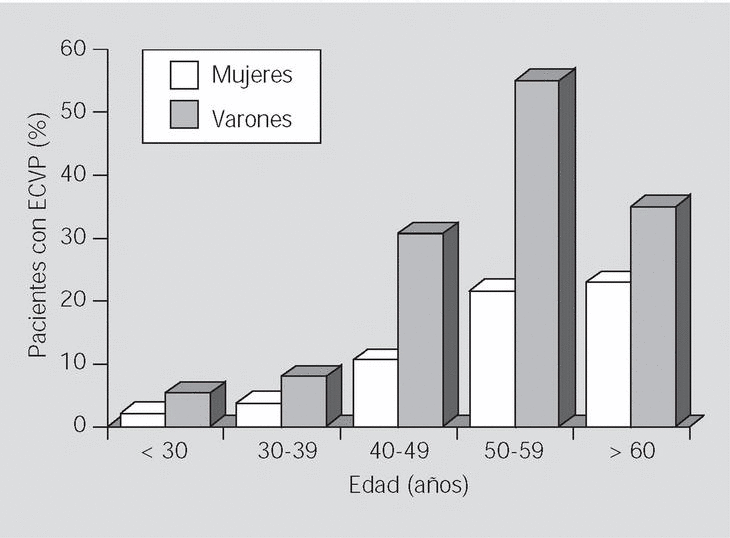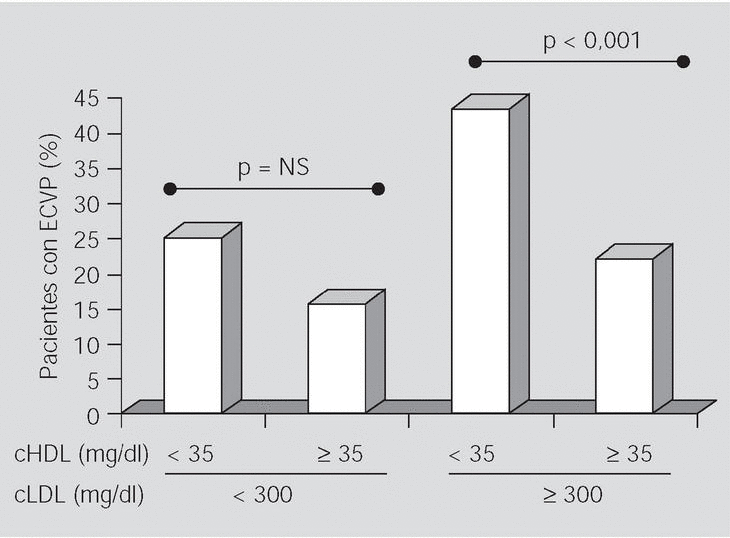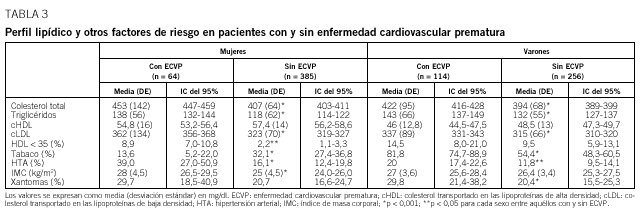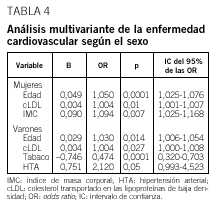Journal Information
Vol. 118. Issue 13.
Pages 487-492 (April 2002)
Vol. 118. Issue 13.
Pages 487-492 (April 2002)
Hipercolesterolemia familiar heterocigota en España. Estudio descriptivo de 819 casos no relacionados
Heterozygous familial hypercholesterolemia in Spain. Description of 819 non related cases
Visits
5493
Rodrigo Alonsoa, Sergio Castillob, Fernando Civeirac, José Puzod, Juan José de la Cruze, Miguel Pocovíb, Pedro Mataa
a Unidad de Lípidos. Servicio de Medicina Interna. Fundación Jiménez Díaz. Madrid.
b Departamento de Bioquímica y Biología Molecular y Celular. Universidad de Zaragoza.
c Servicio de Medicina Interna. Hospital Universitario Miguel Servet. Zaragoza.
d Laboratorio de Bioquímica. Hospital General San Jorge. Huesca.
e Departamento de Medicina Preventiva y Salud Pública. Universidad Autónoma de Madrid.
This item has received
Article information
Background: Heterozygous familial hypercholesterolemia (hFH) is an inherited disorder commonly found among the general population. Premature cardiovascular disease, especially coronary artery disease, is the most important complication in these patients. The aim of this study was to analyze the clinical manifestations and the characteristics of cardiovascular disease in the Spanish hFH population. Patients and method: Analysis of 819 non-related cases (449 females and 370 males), with a clinical diagnosis of familial hypercholesterolemia, from 69 lipid clinics. Clinical and lipid profile at diagnosis along with personal and familial backgrounds related to cardiovascular disease were registered in a central database. Results: Mean total cholesterol at diagnosis was 412 (87) mg/dl in women, and 400 (78) mg/dl in men (p = 0.049). HDL-c was higher in females than in males (57 [14] vs. 47.7 [12.7] mg/dl, respectively, p < 0.0001). Xantomas were present in 22.5% of cases, and 21.7% of subjects had evidence of premature cardiovascular disease which was more frequent in males than in females (30.8% and 14.3%, respectively; p < 0.001). In a multivariant analysis, a significant and positive correlation was observed between cardiovascular disease and age, gender, tobacco consumption, LDL-c levels, blood pressure and body mass index. Conclusions: The clinical manifestations and the presence of cardiovascular disease in Spanish hFH patients are similar to those described in other populations. LDL-c levels, age, gender, smoking, hypertension and body mass index are important predictors of cardiovascular disease in these patients.
Keywords:
Heterozygous familial hypercholesterolemia
Cardiovascular disease
Xanthomas
Risk factors
These are the options to access the full texts of the publication Medicina Clínica
Subscriber
Subscribe
Purchase
Contact
Phone for subscriptions and reporting of errors
From Monday to Friday from 9 a.m. to 6 p.m. (GMT + 1) except for the months of July and August which will be from 9 a.m. to 3 p.m.
Calls from Spain
932 415 960
Calls from outside Spain
+34 932 415 960
E-mail






